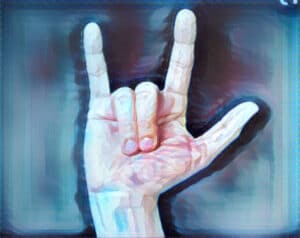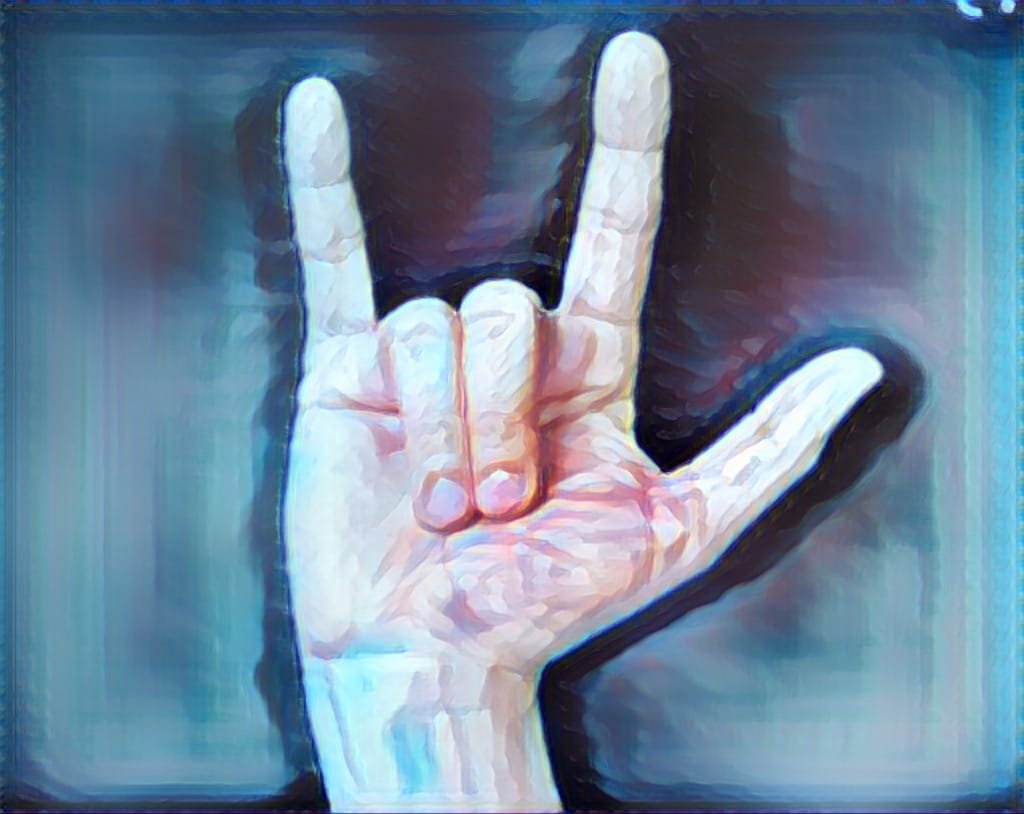Congratulations to the CODA crew on its amazing wins at the Academy Awards on March 27th. As a person with hearing loss, I’m always gratified to see the attention garnered by deaf and hearing loss issues. But, as a person who uses the spoken language to communicate, my communication needs are different than someone who uses a signed language.
Here is an excerpted article I wrote last year after viewing what is now the Oscar winner for Best Picture 2022.
I am deaf but not Deaf. I can hear but I’m not Hearing (term for someone who does not have hearing loss, which I have capitalized for this article). I identify as a person with hearing loss.
Last night, we watched CODA (child of Deaf adults), the new movie about a family that has both Deaf and hearing family members.
The film was charming and moving. I cried a bit and so did the Hearing Husband because we both saw bits of ourselves in the movie. He, as the spouse of a woman with profound hearing loss, saw the challenges that he lives with daily.
I teared up at some brilliantly acted moments that were spot-on and painfully familiar. A lifetime of making a lot of noise and not realizing it because I couldn’t hear it. The isolation when everyone around me understands what’s going on or being said. The having to stare intently at someone’s face to make out what they were saying.
I am not Deaf like the characters in CODA. [] Without my assistive technology I am functionally deaf, but with it, I can hear, although I miss a lot and I still need to speechread. I must also advocate for myself with other people – please speak up, face me, slow down, turn down the background noise, etc.
Many people with hearing loss feel caught between the Deaf and Hearing worlds. But I have never seen it that way; the idea of Deaf and Hearing as being separate worlds doesn’t make sense. Deaf Culture is a way of life which has its own values, traditions, social norms, and identity– and its own language, the language of sign although there is no universal sign language. The ‘hearing world’ is one people can perceive and understand sound. But here’s the thing: whether it’s Spanish, English, German, or Tagalog, you don’t need the ability to hear, or hear well, to speak, write and use a ‘spoken’ language.
Sign language is part of Deaf Culture but Hearing people don’t have a culture built around their common ability to hear. They don’t bond over it. In fact, they generally don’t even think about it – they hear organically, without effort. It’s what they do.
I don’t feel caught between being Deaf and Hearing just as I, because I use corrective lenses, don’t feel caught between the worlds of being Blind or Sighted. I have profound hearing loss, but English is my language – I just can’t always hear or understand it. I have to work at it.
When people say they feel caught in the middle, they may be saying that communication is difficult, frustrating, and very imperfect. They can’t communicate with ease, in the way that Deaf people can sign fluently with each other, and Hearing people can talk and hear easily with each other. With hearing loss, we may need help to communicate in the language we know. We must learn to use technology and non-technical strategies such as using visual cues.
Our world is one of overlapping languages and modes of communication. If we become separated because of hearing challenges, we must work with our communication partners to bridge the gaps. We can all use the almost-universal sign for “I Love You”.
Thank you, CODA, both the actors and the movie itself, for getting a much-needed conversation going again. Now – we need something just as good to benefit people with hearing loss.








Brilliant.. absolutely brilliant
You really hit on so many salient points.
Hearing people lump us together.. or don’t.. they don’t get HOH.
Sometimes. It’s easier to just say, “I’m deaf”.. they don’t get all of the different ways of having hearing loss.. they certainly resists accommodating my needs (speak slowly, don’t tell at me. It just gives me a headache. I can’t understand conversations in noise. They say mean things like “oh, she has selective hearing.. pretends to be deaf, but she really isn’t.. don’t listen to her.. she just wants to complain,etc”
That movie made me cry like a baby.
The writing, the acting.. the family dynamics.. so many things
Abs to think. no one has ever really broached this important subject before
And then, there’s your book with Shari
Will the world listen?
Ever?
I can only pray
Bless you for being you
You were out in this earth for a reason
You’re an angel
Thank you for explaining it so beautifully in a way people can understand difference between Deaf Culture and hearing loss. Use of technology and work it takes to stay connected with hearing world. Acceptance and self advocacy is the key.
At age 79 I have not been to a movie in years. Decades, I must see this one. I’have bilateral cochlear implants to hear sound, still do not understand especially behind a mask, so now I just say I am deaf. So frustrating and feel so lost. Hoping to get new upgrade implants this year.
Thanks for this article.
Bev Sands
A silver lining is that CODA won the Oscar for Best Picture at the Academy Awards. CODA stands for Children of Deaf Adults. It is a movie that brings attention to deafness and especially Deaf “culture,” that is, Deaf people who are in the core of the Deaf community who use a sign language, typically American Sign language.
As someone who started losing hearing at age 17 because of hereditary nerve deafness, a condition that came from my mother and affects maybe 10% of aunts, uncles, cousins, and others in the family genetic pool, I can say that CODA’s popularity is welcome.
But I also feel obliged to point out that despite attention from the movie, hearing loss will likely remain largely misunderstood. Just last week during a doctor’s visit I was asked, “Do you use sign language?” I replied, “No.” The fact is, of the 48 million Americans with hearing loss, approximately 1% use sign language.
Seeing a Deaf person use sign language obviously results in awareness that the person does not have normal hearing. But it does nothing to raise awareness for the 99% for whom hearing loss remains largely hidden.
A big problem is that we try to hide our hearing losses, and the hearing aid industry will gladly sell us “invisible” hearing aids, so tiny that the aids can be concealed inside our ears.
Can you imagine a worse way to promote good communication? Can you imagine what the speaker thinks when the person with poor hearing does not respond in a normal manner, and the speaker is unaware the person has the hearing loss?
Thankfully, the technology has been amazing. Cochlear implants have restored hearing for many with little or no residual hearing. Voice recognition software can now reproduce speech in a manner that was impossible a decade ago.
So, go see CODA. And the next time your family member, neighbor, or co-worker does not respond in a normal manner, give him or her the benefit of the doubt.
Thank you. When people ask me why I do not sign, I reply that English is my first language just as sign language to the “culturally deaf.”